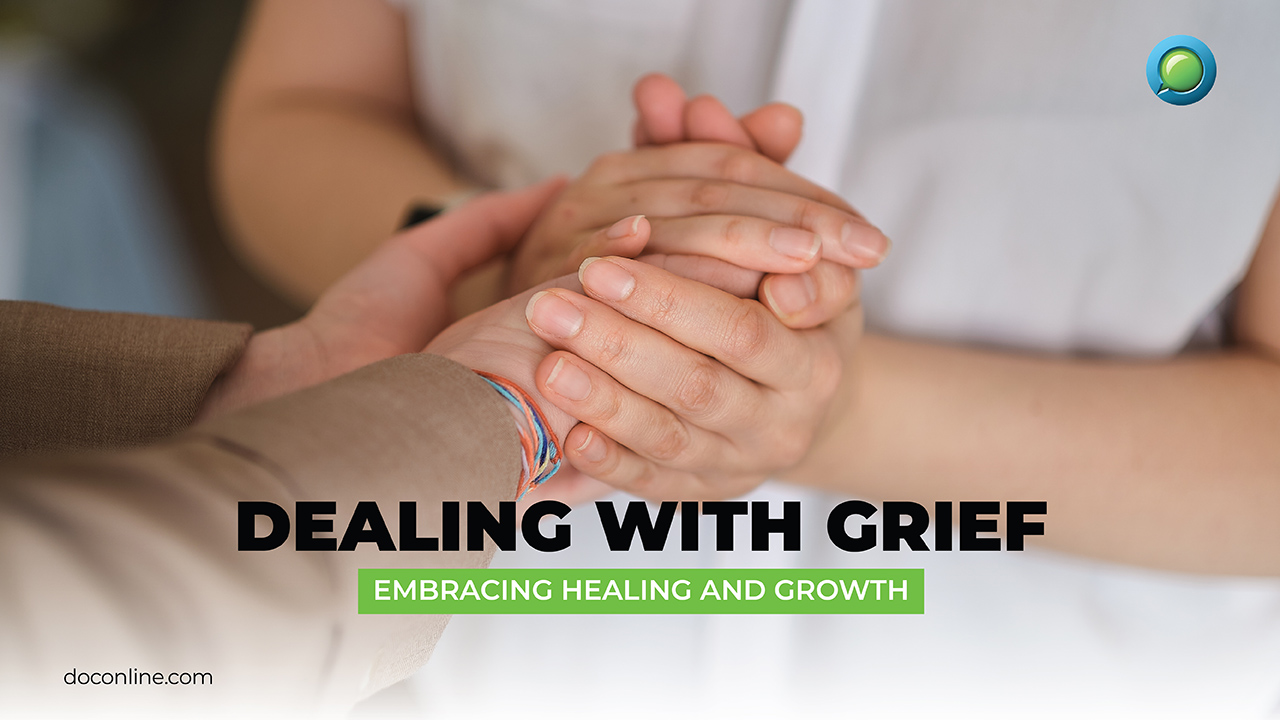Grief is an inevitable part of life that touches us all at some point. Whether it stems from the loss of a loved one, a relationship, a job, or any significant life change, grief can be overwhelming. However, it is essential to recognize that grieving is a natural and necessary process for healing and growth. In this blog, we will explore the importance of dealing with grief and provide practical ways to navigate through it.
Understanding the Importance of Dealing with Grief:
- Acknowledgment and Acceptance: Recognize that grief is a normal response to loss and allow yourself to experience and accept the emotions that arise.
- Emotional and Mental Well-being: Unresolved grief can lead to prolonged distress, depression, or anxiety. Dealing with grief promotes healing and emotional well-being.
- Physical Health: Grief affects the body as well, potentially causing sleep disturbances, changes in appetite, and a weakened immune system. Addressing grief can help restore physical health.
- Honoring the Loss: Dealing with grief allows us to honor the significance of what or whom we have lost, cherishing their memory and the impact they had on our lives.
While it's important to note that grief is a highly individualized process, these stages provide a general roadmap for the experiences one may encounter:
- Denial: In this initial stage, the individual may struggle to accept the reality of the loss. They may feel shock, numbness, and disbelief, attempting to shield themselves from the overwhelming emotions that come with the loss.
- Anger: As reality sets in, the person may experience intense anger and frustration. They may question why the loss occurred and direct their anger at themselves, others, or even the person or situation responsible for the loss. This anger can be a way of expressing the pain and asserting control over a situation that feels uncontrollable.
- Bargaining: During this stage, individuals often try to negotiate or bargain in an attempt to reverse or alter the outcome. They may make promises, seek to find meaning, or attempt to make amends. Bargaining is often characterized by a desperate search for a way to regain what has been lost.
- Depression: Feelings of sadness, emptiness, and profound loss can become prevalent at this stage. The person may withdraw, experience a lack of motivation, struggle with sleep or appetite changes, and find it difficult to engage in regular activities. This deep sadness is a natural response to the significant change or loss experienced.
- Acceptance: The final stage involves reaching a place of acceptance and coming to terms with the reality of the loss. It doesn't mean the pain disappears completely, but rather, individuals find a way to integrate the loss into their lives and adjust to a new normal. They may begin to focus on healing, rebuilding, and finding new sources of meaning and joy.
Ways of Dealing with Grief:
- Express Your Emotions: Give yourself permission to feel and express your emotions, whether it's through talking with a trusted friend, writing in a journal, or seeking professional counseling.
- Seek Support: Reach out to friends, family, or support groups who can offer understanding, compassion, and a listening ear. Connecting with others who have experienced similar loss can be particularly beneficial.
- Self-Care: Take care of your physical and mental well-being by engaging in activities that bring you comfort and joy. Prioritize healthy sleep patterns, nourishing meals, exercise, and relaxation techniques like meditation or deep breathing exercises.
- Practice Self-Compassion: Be patient and kind to yourself as you navigate the grieving process. Allow yourself time to heal and understand that grief unfolds differently for each individual.
- Seek Professional Help: If you find yourself struggling to cope with grief or if it significantly impacts your daily functioning, consider seeking professional help from a therapist or counselor specializing in grief counseling.
- Journaling: Write down your thoughts, feelings, and memories related to the loss. Journaling can be a therapeutic outlet and a way to gain clarity and perspective.
- Engage in Creative Expression: Explore creative outlets such as painting, playing an instrument, or dancing, which can serve as a means of catharsis and self-expression.
- Find Meaning and Purpose: Seek ways to find meaning in your loss, such as supporting a cause related to your experience, volunteering, or engaging in activities that align with your values.
- Give Yourself Time and Space: Healing from grief is a personal journey that takes time. Allow yourself to grieve at your own pace, without judgment or pressure.
Grief is an inevitable part of the human experience, and it is essential to acknowledge, face, and navigate through it. While the journey of grief can be painful and challenging, it is crucial to remember that healing is possible. By allowing ourselves to grieve, seeking support from loved ones or professionals, and practicing self-care, we can gradually find solace and meaning during loss. Remember, there is no timeline for grief, and everyone's journey is unique. Be patient, kind, and compassionate with yourself as you navigate the complex emotions of grief. Embracing the process and seeking healing will ultimately lead you to a place of strength, resilience, and newfound hope













